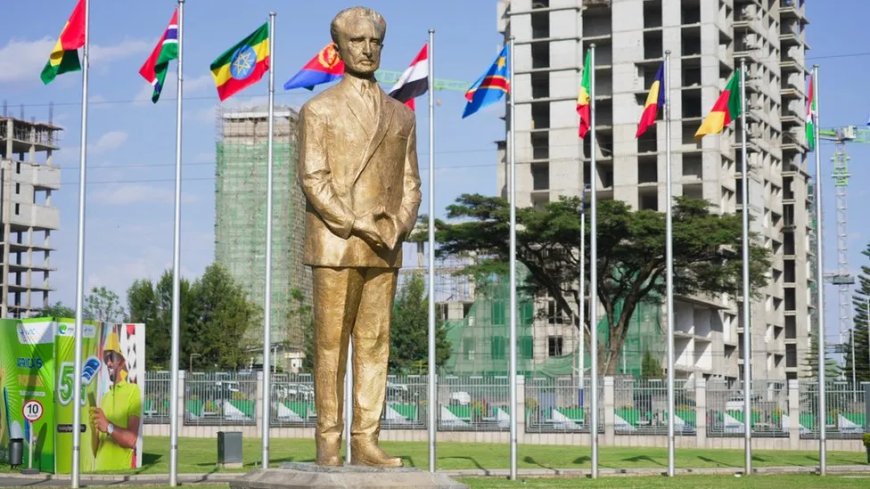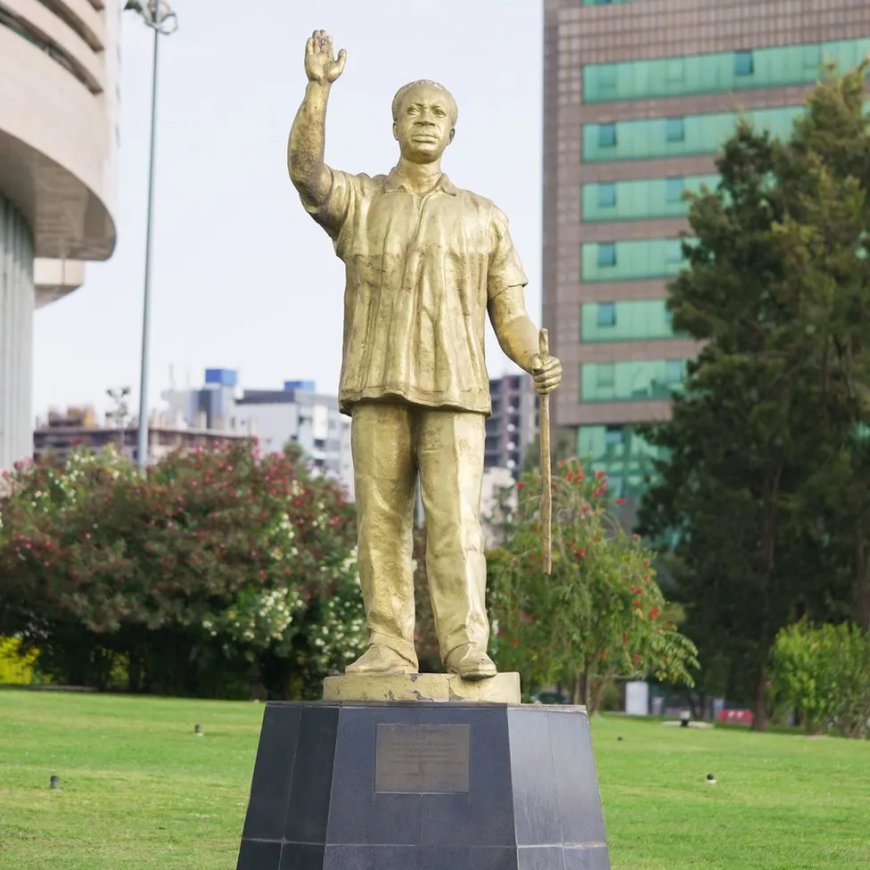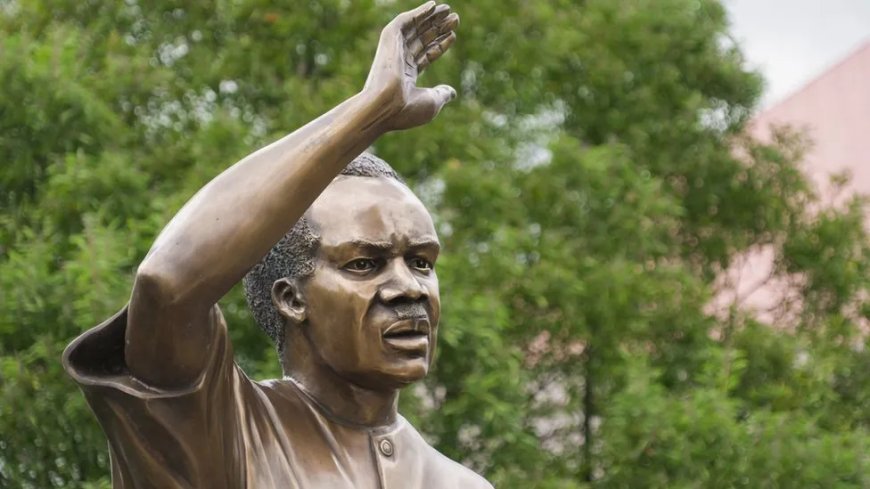Former Tanzania’s Nyerere joins AU statue honorees: Following Nkrumah, Haile Selassie in African nationalism
Julius Nyerere passed away in 1999 at the age of 77. His legacy is commemorated annually on the anniversary of his death, October 14th, which is observed as a public holiday.
The founding father of Tanzania Julius Mwalimu Nyerere, , has been commemorated with a statue erected outside the headquarters of the African Union in the capital of Ethiopia, Addis Ababa.
Nyerere joins the esteemed ranks as the third leader to be commemorated with a statue outside the AU headquarters, following in the footsteps of Ghana's founding father and pan-Africanist Kwame Nkrumah, and Ethiopia's emperor Haile Selassie. Haile Selassie, renowned for his steadfast resistance against Italy's colonial ambitions in the 1930s, subsequently played a pivotal role by agreeing to host the OAU, solidifying his status as a symbol of African nationalism.

It should be noted that Nyerere led Tanzania from independence in 1961 until 1985 and he was a committed pan-Africanist and hosted independence fighters opposed to white minority rule in southern Africa.
He also played a key role in the creation of the Organisation of African Unity, which later became the African Union.
During a ceremony attended by numerous African heads of state, AU Commission leader Moussa Faki Mahamat unveiled the statue, stating, "The legacy of this remarkable leader encapsulates the essence of Pan-Africanism, profound wisdom, and service to Africa." He reminisced about Nyerere's words during the inaugural OAU summit in 1963, "Our continent is one, and we are all Africans."
Nyerere advocated for the adoption of Swahili as a common language and advanced his vision of "African Socialism" or ujamaa (familyhood).
In 1964, Tanganyika merged with the Zanzibar archipelago to establish Tanzania. Later, it transitioned into a one-party state. Nyerere justified the absence of multi-party elections by asserting that Tanzanians enjoyed greater freedom under his leadership than they did under British rule and emphasized the necessity of the one-party system for ensuring stability.
https://twitter.com/AfricanHeralds/status/1759521275733492199
Paying her tribute to Nyerere, Tanzania's President Samia Suluhu Hassan said: "To him, Africa's wellbeing came first, before popular approval, personal fortune or country wellbeing."
Nyerere's staunch opposition to the expulsion of Asians from neighboring Uganda in 1972 under Idi Amin was well-documented. As relations between the two countries continued to deteriorate, tensions reached a boiling point. In response, seven years later, Nyerere made the bold decision to mobilize Tanzanian forces and intervene militarily in Uganda, ultimately leading to the ousting of Idi Amin from power.

This significant military action underscored Nyerere's commitment to regional stability and his willingness to take decisive action to uphold principles of justice and human rights.
Zambia's President Hakainde Hichilema hailed the unveiling of the statue honoring "one of our continent's iconic figures" as a "proud day" in a post on social media.
He began his career as a trained teacher and achieved the distinction of being the first person from Tanganyika to pursue studies at a British university, attending the University of Edinburgh in 1949.
Julius Nyerere passed away in 1999 at the age of 77. His legacy is commemorated annually on the anniversary of his death, October 14th, which is observed as a public holiday.
What's Your Reaction?

















































































